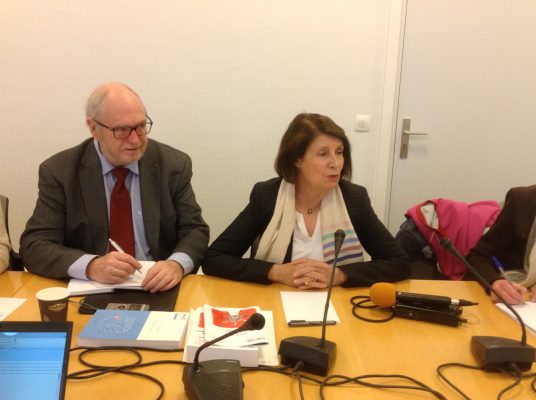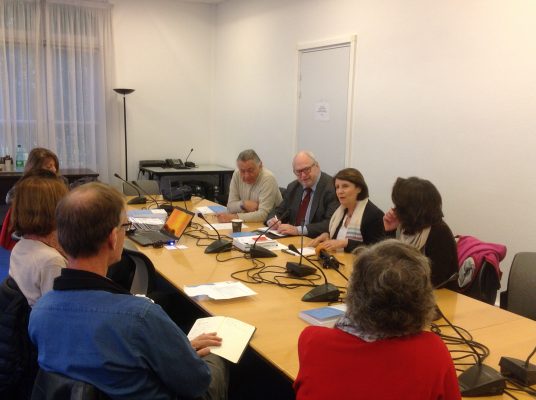It cannot enforce its recommendations, but the French government’s human rights advisory body has been vocal and sometimes effective in criticizing such hot-button subjects as France’s ongoing state of emergency, the fate of migrants, and the right of Muslim women to wear head-to-toe covering burkinis on public beaches, its head says.

For Christine Lazerges, a professor of penal law at Sorbonne University and president of the National Consultative Commission on Human Rights (CNCDH), the state of emergency has produced enormous economic and social costs.
While the rights body did not object to the original decree proclaimed by President Francois Hollande after last November’s terrorist attacks in Paris, “the state of law has been bi-passed” in its many extensions, Lazerges said during a Nov. 15 meeting with AAPA members.
“I’m not trying to say that during the period we’re living through, that we do nothing against terrorism — obviously not,” she said, answering a question about police searches. “But we must not put social cohesion in peril just to find a bit of cannabis or heroine.”
Founded in 1947, the CNCDH is made up of 64 members, ranging from unions to environmental and rights groups such as Amnesty International and Secours Catholique.
Based in a government building across from the National Assembly that also houses France’s sports ministry and other state bodies, the CNCDH oversees France’s adherence to international agreements, produces reports on issues like housing, immigration, drug use and identity controls, and offers opinions on various government measures.
It also has access to key government members that sometimes allows it to be quietly effective, Lazerges says.
As a case in point, she describes a meeting earlier this year with interior minister Bernard Cazeneuve (now France’s prime minister) which she believes helped reverse plans to close the Grande-Synthe migrant camp near Calais.
When it comes to the state of emergency — which the government now wants to extend through next year’s elections — the CNCDH has criticized the methods and effectiveness of tactics like police searches and house arrests.
“A family that’s been targeted in a police search wants to do only one thing,” Lazerges said. “To move out, because it feels stigmatized — certainly not to appear before an administrative court asking for reparations and compensation for the damage that was done.”
On the burkini, the CNCDH has opposed efforts by some mayors to ban the Muslim swimwear on public beaches. France’s 1905 law, separating church and state, means “everyone can wear a cassock, including a priest,” Lazerges said.
She also expressed concern about the broader fallout in Europe of the US presidential elections.
“I fear a ‘Trump effect,’” in France’s own presidential campaign, Lazerges said, suggesting Republican Donald Trump’s shock victory will feed extremist sentiments among some voters who feel abandoned by mainstream parties.
“What happened in the United States is, in my view, dramatic for Europe that is already doing badly,” she added. “It exonerates the far right.”
